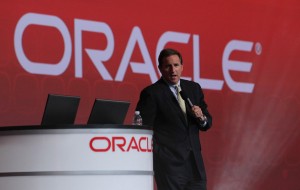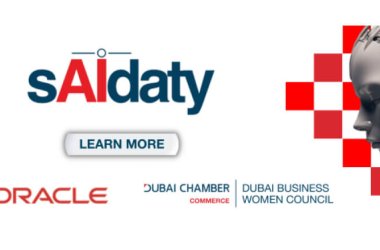
Oracle president Mark Hurd has pledged to “make it easier” for customers to do business with the company.
The pledge came in response to disquiet among customers, some of which was aired at the company’s Collaborate 12 user groups’ conference in the US.
Complaints included the complexity of contract negotiations when trying to buy Oracle products and the demands for complex, wide-ranging license negotiations when users simply wanted to add more licenses to their existing investments.
Customer relations is a major concern for Oracle, which has gone to considerable efforts to reassure customers it acquired through acquisitions – from Siebel and Retek to Hyperion and Sun – that their interests would be preserved.
Acknowledging the issue, Hurd said: “We want to eliminate every barrier we can to making it hard for customers to do business with us. We have no objective other than to help our customers. So that’s what we’re trying to do.”
Hurd said the company also wanted to make it “simple and easy as possible” for users to update their software, without feeling pressured to do so. But he admitted that not all customers were happy with Oracle’s upgrade policy.
“We don’t want them [customers] to feel locked in. They have choices,” said Hurd.
“We try to be flexible within our upgrade windows. At the same time we try to keep customers on the most current versions of the software possible.
“We don’t think it’s good for either us or our customer to be four versions back in terms of their software. It’s very hard to support the technology, it’s very hard for us to keep current skills to very old versions of software. So we try to find ways to make it as painless as possible to get customers up to the most current version as possible.”
“It doesn’t mean every customer likes it,” he added.
Acquisition strategy
Oracle has been on an acquisition drive for the best part of a decade and Hurd saw no reason to let up. While much merger and acquisition activity in the economy is driven by the need to acquire customers, Hurd explained Oracle’s strategy in terms of intellectual property and product sets.
“We are working to get out of the things that don’t have IP,” he said. “Inside the hardware business, business that came over with Sun [Microsystems] that were OEM-d [that is, white-labelled] from third parties, had no IP from Sun and no IP from Oracle, those products we [began to] phase out – storage products for example.”
As for future acquisitions, Oracle will focus on buying in solutions that it does not already have in R&D, said Hurd.
“For example, with RightNow, we bought a solution we were not building. With Taleo, we bought a recruiting application we weren’t building.
“The best way to predict our behaviour would be to look at things that may or may not be on our roadmap, and that is probably where we’re looking at,” said Hurd.
SaaS opinion
Like other enterprise software giants, Oracle has struggled to adapt to the burgeoning software-as-a-service market. While valuing Oracle’s SaaS revenue at $1 billion (£616 million), Hurd admitted its SaaS rivals, such as Netsuite and Salesforce.com, as “still growing”.
“When Netsuite was created, it was about software on the internet. The only thing he (company founder and former Oracle employee Zach Nelson) didn’t have right was the name – he didn’t have SaaS or cloud. He thought it was a big deal, and he was right,” Hurd said of the company backed by his boss, Oracle CEO Larry Ellison.
He was less complimentary about Salesforce.com, the company founded by former Oracle employee Marc Benioff in 1999, with whom Ellison fell out publically at last year’s Oracle OpenWorld.
“Salesforce.com doesn’t make any money. They just spend money like crazy. At some point, some shareholder is going to ask them ‘hey, this thing ever, like, show up with any cash?’ I don’t know why anyone would buy a stock that doesn’t make money,” Hurd said.
Unlike most of the SaaS rivals that are snapping at its heels, Oracle undoubtedly makes money and delivers returns for its shareholders. Whether Hurd can convince customers, many of whom were acquired through acquisitions, that he has the balance right between shareholder and client interests, is though a major challenge.




